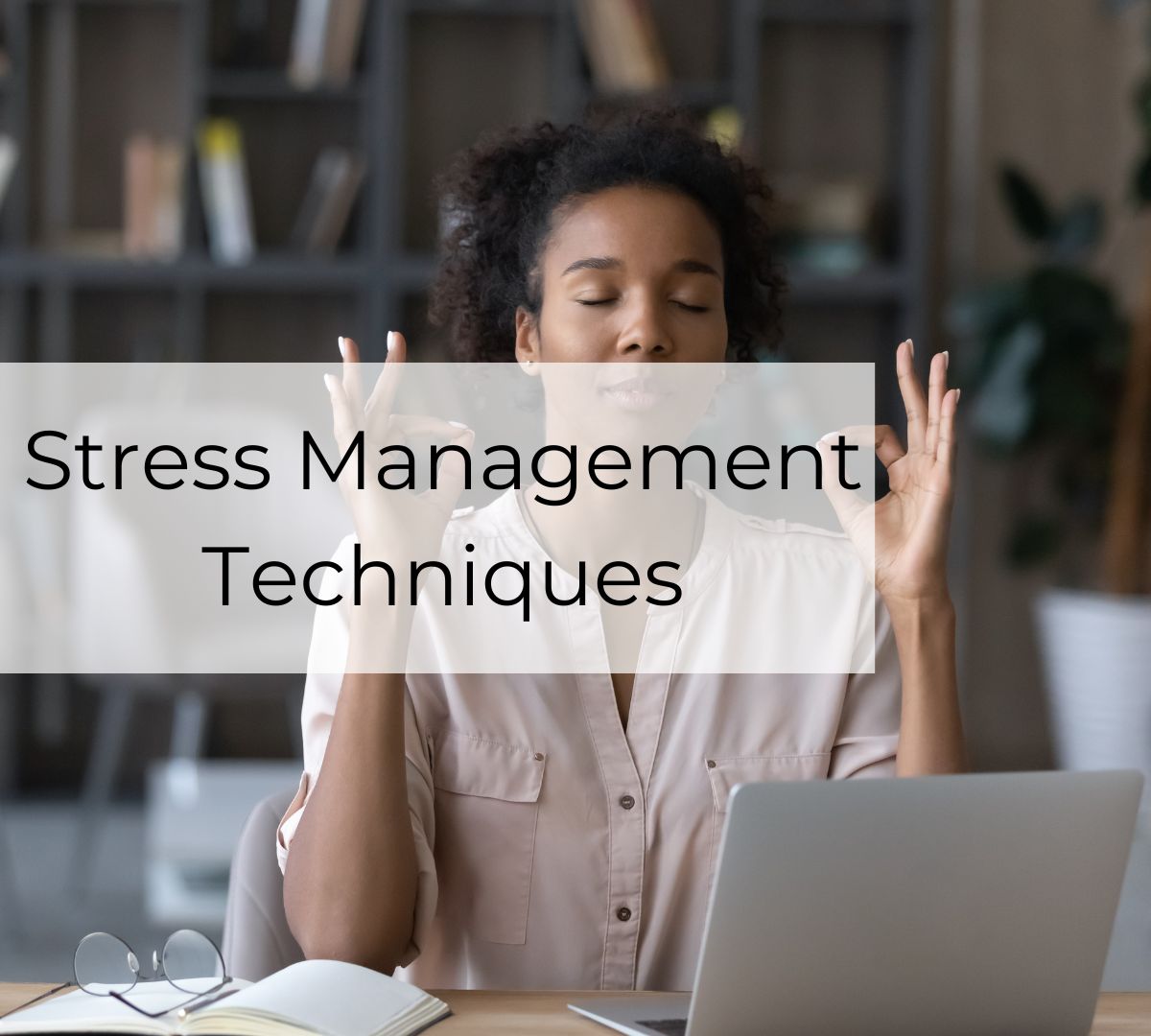Life can sometimes feel like an endless source of stress, but the good news is that there are practical, effective ways to manage and reduce it. Mastering stress management can significantly improve your well-being, helping to prevent long-term health problems like heart disease, anxiety, and even depression.
What is Stress Management?
Stress management is all about regaining control of your life. While it’s true that you can’t eliminate every stressor—bills, work, and personal responsibilities aren’t going anywhere—you do have control over how you react to them. Stress management techniques aim to help you balance your life, enabling you to navigate through daily challenges while keeping your mental and physical health intact.
At its core, stress management is about making intentional choices: how you think, feel, and respond to life’s inevitable pressures. With practice, you can create a balanced lifestyle where work, relationships, and relaxation coexist. But remember, it’s not a one-size-fits-all solution. The key is to experiment with different techniques and find what works best for you.
Identifying Stress Triggers
Understanding the sources of stress is the first step towards controlling it. Sometimes, it’s obvious—moving to a new house, starting a new job, or experiencing a major life change. But everyday stress, like juggling work deadlines or dealing with family issues, might be harder to pinpoint.
Take a moment to reflect on your thoughts, feelings, and habits. Do you brush off stress as temporary, even though it never seems to go away? Do you assume stress is just a part of your life? You can start to better manage your stress by realizing how your attitude affects it.
Replace Unhealthy Coping Mechanisms with Healthy Ones
Many people deal with stress in ways that provide immediate relief but cause more harm in the long run. Overindulging in food, abusing alcohol or drugs, or spending endless hours in front of the TV are examples of these harmful coping techniques. While these might help in the moment, they often lead to more stress later on.
Instead, replace these habits with healthier options. For example, instead of turning to junk food, try cooking a nutritious meal. If you’re feeling overwhelmed, take a walk or call a friend. Experiment with different techniques and find what makes you feel calm and in control.
The 4 A’s of Stress Management
Keep in mind the four A’s when it comes to stress management: avoid, alter, accept, and adapt.
Avoid Unnecessary Stress
You can regulate some stresses, but not all stress can be avoided. Take charge of your surroundings, avoid people who sap your energy, and learn when to say “no” when you’re overcommitting.
Alter the Situation
If you can’t avoid a stressful situation, find ways to change it. Instead of keeping your demands and feelings inside, let them out. Also, practice being more assertive, handling issues as they arise.
Adapt to Stressors
If you can’t change the situation, adjust your expectations. Reframe problems by focusing on the positive aspects or learning from the situation. Practicing gratitude can also help you shift your mindset from stress to appreciation.
Accept What You Can’t Change
Some things, like the loss of a loved one or a global recession, are beyond your control. Acceptance doesn’t mean resignation; it means finding peace in situations you can’t change. Focus on what you can control—your response.
Physical Activity: A Natural Stress Reliever
One of the best methods to manage stress is to exercise. To benefit from it, you don’t have to be an athlete or spend a lot of time at the gym. Endorphins, which are released when you exercise, lift your spirits and help you divert your attention from your problems.
Start small if you’re not used to exercising. Take short walks, use the stairs instead of the elevator, or dance to your favorite song. Even small amounts of movement can reduce stress and boost your energy levels throughout the day.
Managing Time to Reduce Stress
One of the main causes of stress is ineffective time management. When you’re stretched too thin, it’s easy to feel overwhelmed. Start by setting realistic goals and prioritizing tasks. Divide complex tasks into smaller, more doable chunks, and assign when you can.
You’ll experience less stress and have more time for the activities you enjoy when you learn how to manage your time more efficiently.
Building Connections: The Power of Social Support
There’s no better antidote to stress than spending quality time with people who lift you up. Talking to a friend or family member about your stressors can be incredibly cathartic, even if they can’t solve the problem for you.
Make a conscious effort to reach out to those who support you. Whether it’s grabbing coffee with a friend, volunteering, or calling an old acquaintance, building and maintaining social connections is a powerful way to build resilience against stress.
Make Time for Fun and Relaxation
A healthy, balanced life includes downtime. Whether it’s reading a book, practicing yoga, or simply enjoying a hobby, make sure to carve out time for yourself. Laughter is another great way to manage stress. Don’t take life—or yourself—too seriously. Learn to laugh at the small things, and you’ll find stress less overwhelming.
Maintaining a Healthy Lifestyle
Stress can take a toll on your physical health, but a healthy lifestyle can help mitigate its effects. Consume a healthy, balanced diet, get adequate rest, and cut back on sweets and caffeine. These habits will boost your energy and help you manage stress more effectively.
If you feel tempted to turn to alcohol, cigarettes, or drugs to manage stress, remember that these are short-term fixes that often make things worse in the long run. Instead, focus on healthier habits that help you face challenges with a clear mind.
Quick Tips for Reducing Stress
When stress hits hard, you need quick relief. Deep breathing exercises, listening to music, or even savoring a small piece of chocolate can help calm your nerves in the moment. The key is to use your senses—what you see, hear, taste, and touch—to bring yourself back to a state of calm and focus.
By mastering these stress management techniques, you can reduce stress’s impact on your physical and mental health. Recall that while stress is a natural part of life, it doesn’t have to take over your existence. With the right strategies, you can build resilience and enjoy a more peaceful, balanced life.



